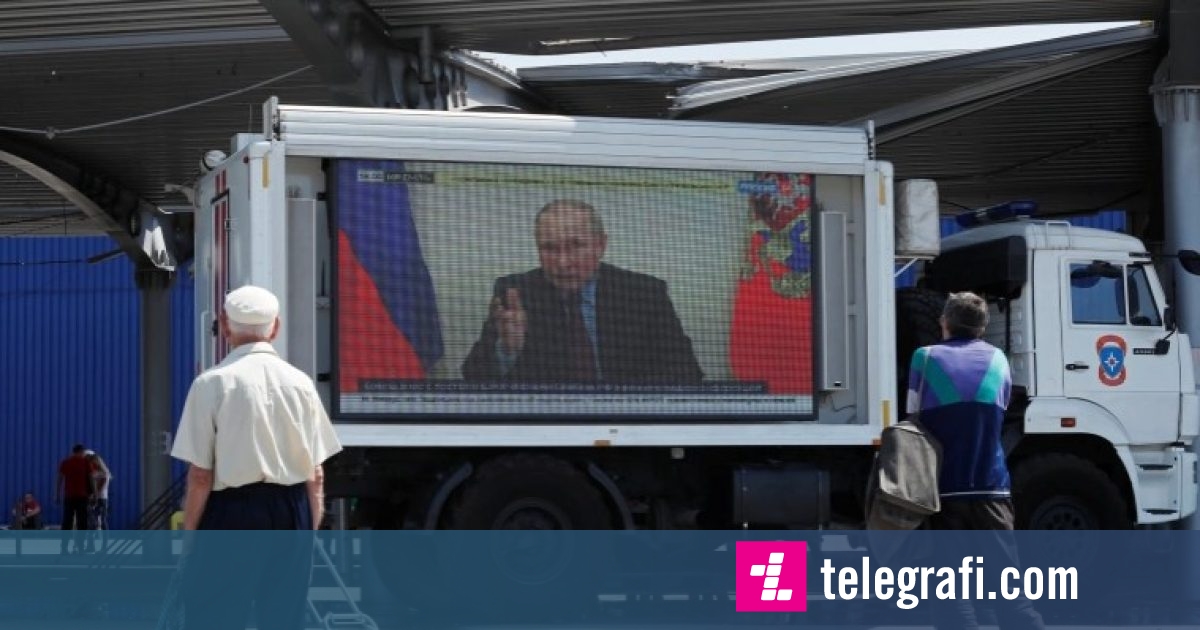The official or state media in Russia, which dominates the country, has changed its tone several times throughout the crisis in Ukraine, from denying the invasion took place in February, to praising the "just denazification of Ukraine".
But in general, compared to the first months of the war, the topic has faded and moved into the background.
According to a recent study, state television mentions the war less and less, while "denazification", one of the declared goals of Moscow's "special operation", is very rarely mentioned, Al Jazeera writes, Telegraph reports.
According to the medium in question, more air time is devoted to simple entertainment, compared to the continuous political programs seen in February and March.
However, on September 6, Ukraine launched a counteroffensive in the Kharkiv region, recapturing several key cities and occupied territory.
At first, pro-Russian bloggers and media downplayed Ukraine's progress.
"There is no panic in Balakliya," wrote the Veteran's Notes Telegram channel, which boasts 192,000 subscribers, on September 6.
A number of pro-Russian sources, including that of famous talk show host Vladimir Solovyov, reposted that message.
The next day, however, took a more somber tone.
"Don't expect good news today."
Even Russia's main sports channel Match TV has its own daytime "political talk show" in the mold of 60 Minutes and Time Will Tell
Today host Anton Anisimov signed off with this somewhat panicky message about the Ukrainian offensive in Kharkiv Region pic.twitter.com/zAYCTAceNJ
— Francis Scarr (@francis_scarr) September 9, 2022
Meanwhile, speaking about the loss of Izyum, the host of a "political debate" on Match TV, a sports channel, called on his viewers to "pray for our boys".
In addition, the government and its friendly voices in the media have acknowledged that Russian forces have withdrawn from previously held positions, but have avoided calling it a defeat from the outside.
Defense Ministry spokesman Igor Konashenkov, for example, announced that the decision was made in order to redeploy forces from Balakliia and Izyum and reinforce the Donetsk region, which is held by separatists.
Pro-Kremlin blogger Yuri Podolyaka, meanwhile, described it as an opportunity to regroup.
"The adversary is throwing its main forces into battle," he told state-controlled Channel One television.
“Yes, of course we've retreated to new positions and given up some pretty important territory, but if we gather a good force and hit them from the north, Izyum and the north, our initial problems could turn into big problems for the army Ukrainian".
Life comes at you fast: pundits on Russian TV realize that their military is failing and their country is in trouble.
They are starting to play the blame game.
Some of them finally understand that their genocidal denial of the Ukrainian identity isn't working in Russia's favor.
pic.twitter.com/jNNn5xifI5
— Julia Davis (@JuliaDavisNews) September 11, 2022
The state-run newspaper Rossiyskaya Gazeta did not mention the gains from Ukraine on Sunday, instead claiming that Ukraine suffered 4,000 deaths between September 6 and 10.
Liberal politician Boris Nadezhdin even said during a televised debate that defeating Ukraine was impossible and called for peace talks.
In a video that has been widely shared on social media, Nadezhdin avoided blaming President Vladimir Putin himself, instead accusing the president's advisers of misinforming him about the situation in Ukraine before and during the invasion.
The word "war" is used widely throughout the segment, as opposed to the officially mandated "special operation," including by Nadezhdin and politician Aleksandr Kazakov, who objected to Nadezhdin's sympathetic tone.
/
Telegraph
/
